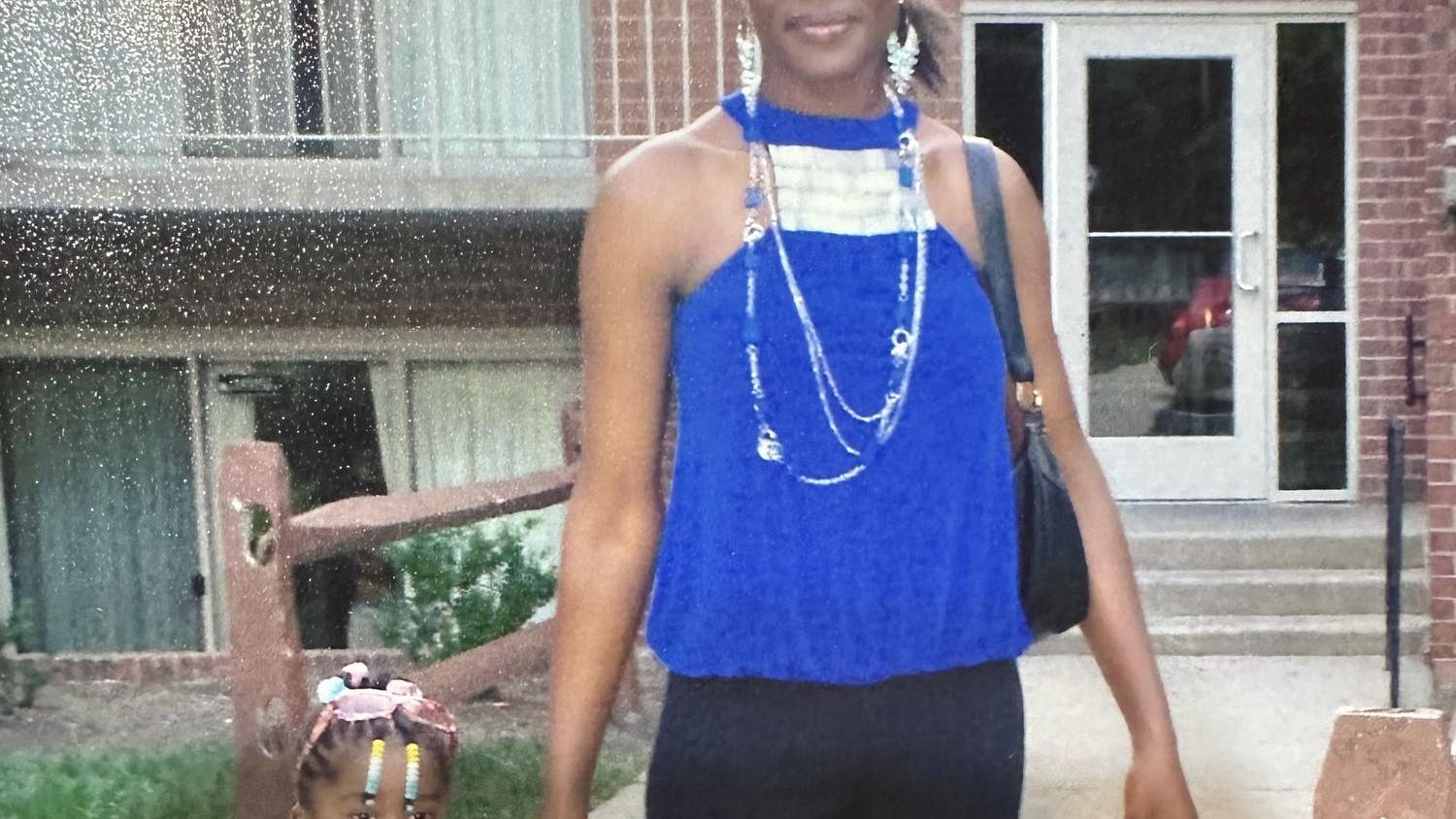Sports can be seen as a microcosm of American society, a way we can observe a reflection of larger societal issues, such as race and fairness.
As the 2021 NFL Draft approaches, media analysts, some considered draft “experts,” begin to construct and relay narratives about NFL draft hopefuls. Unfortunately, it is unsurprising to see certain racial stereotypes and coded criticisms again emerge, especially in regard to Black college quarterbacks. Identifying this has become a little more complex. Blatant or conscious racism tends not to be the most prominent way in which conclusions based on race originate from. Instead, subconscious or unconscious bias seems to be the underlying source of this tired pattern of “analysis” that seems to result in lazy stereotypes, propped up by coded language and double standards.
I talked to Elisha Guidry, a defensive back for the UCLA Bruins, proposing a few questions in order to gain some insight into this matter:
Do you think the media and other people that are a part of evaluating or commenting on NFL players/prospects refer to Black quarterbacks differently?
“I do, there is a difference in how they are covered, how they are critiqued, and this is the same when they are quarterbacks in the league. It’s almost like they have to be completely perfect when there is never a perfect player.”
Do you think this is unfair?
“It is definitely unfair because the people in the media have so much power to shape narratives and they have the power to say whatever they want even if it is completely wrong or completely disrespectful with no repercussion.”
How does this negatively impact the sport and its players?
“I feel like it fuels fans and creates narratives that aren’t true. Like the media can say something that is completely different from what actually goes on on the team and in the organization. It makes the sport ‘interesting’ because of the storylines media can create but is a lot on the mental of the players.”
Both academic and research and expert opinion seems to confirm Guidry’s sentiments.
Warren Moon, the only Black quarterback in the NFL Hall of Fame, said: “the quarterback position was the position that a lot of people didn’t think we could play for different reasons, whether it was the leadership, whether it was being able to think, be able to make critical decisions at critical times. You know, be the face of a franchise, all those different things that go along with being a franchise quarterback.” Historically, there has been the belief by some surrounding or within the league that quarterback is not a position suitable for non-White players, usually due to unfounded assumptions about intangible qualities. Over time, explicit racial discrimination has become less prominent in the NFL, yet stereotypes remain. In the words of the Washington Post, “a white quarterback prospect is more likely to be discussed in terms of intangible internal qualities for which he himself is responsible… In contrast, a minority quarterback prospect is more likely to be discussed in terms of physical characteristics, to be judged erratic and unpredictable, and to have his successes and failures ascribed to outside forces.” The disparity in the words and characteristics that are used to describe quarterbacks is striking and equally problematic in terms of the implications such disparities in evaluation have.
Mel Kiper Jr., an NFL Draft “expert,” had this to say about Black quarterback Lamar Jackson entering the 2018 NFL Draft: “It’s the accuracy throwing the football. Finished career around 57 percent.” But in the same draft coverage cycle said this about white quarterback Josh Allen’s 56.2%completion percentage, “Stats are for losers in my opinion. The guy won.” Is this a fair and equal standard these players are being held to? Why the difference? Lamar Jackson, who put together arguably far more impressive stats and wins against tougher competition at Louisville than Wyoming’s Josh Allen, was told he would have to switch positions in the NFL to have any success, something that seems only to be proposed when the quarterback in question is Black. Bill Polian, former Colts general manager, said this about Jackson: “Short and a little bit slight … clearly not the thrower that the other guys are. The accuracy isn’t there … I think wide receiver. Exceptional athlete …” At best, this was a bad take. Likely, however, this is an example of even industry “experts” falling back on certain racial beliefs held about Black players playing quarterback in the NFL, that quarterback was not a position Jackson could handle. His accuracy was not in reality worse than most other quarterback prospects, so where did this narrative come from? Why did being an exceptional athlete mean he had to switch positions? Why was 6’2 labeled short when that height is just about league average? A study found that “we estimate that for a white prospect at the average weight of 223 pounds, there is a 6 percent chance that his report will use the word ‘weight.’ For a minority prospect weighing 223 pounds, the chance is much higher: 27 percent. Minority prospects, it would seem, are being evaluated by different criteria than white prospects are.” This shows that not all prospects are being evaluated consistently and physical characteristics tend to be an issue when the prospect is Black. This is especially interesting in this specific analyst’s view on Lamar Jackson. Lamar Jackson, who is 6’2 and 212 pounds, was seen by Bill Polian as too undersized to be a quarterback in the NFL. Quarterback Andy Dalton is 6’2 215 pounds — and white — and Bill Polianreportedly wished he drafted Dalton in the 2011 NFL Draft. What is the difference? This double standard is both unfair and telling in the way NFL analysts fixate on the physical aspects of Black quarterbacks and seems to have different criteria in evaluating these players versus their white peers.
Ultimately, Josh Allen would go on to be drafted 7th overall, while Heisman-winning quarterback Lamar Jackson would be the 5th quarterback taken, the 32nd overall pick. Despite many analysts betting against him, Jackson would win unanimousNFL MVP in 2019, at quarterback, leading the NFL in passing touchdowns. 2018 NFL MVP Patrick Mahomessaid, “In my first year, what annoyed me more than anything is that people thought it was just my arm … Everybody just talked about my arm instead of talking about how I was making the right decisions, going to the right place.” Discussing Lamar Jackson, Mahomes said, “He threw for over 30 touchdowns, but everybody just wanted to talk about the runs.” He followed with a confirmation that he thinks race has something to do with this. Astudy of media commentary reported that “[the] findings of this study indicate that despite recent improvements, a racial bias remains in NFL commentary. Black players are described primarily in terms of their physical characteristics, with less emphasis on their cognitive and personal characteristics than their white peers.” The evidence, from people directly involved to statistically significant academic research, seem to give credibility to the claim that Black quarterbacks are treated and referred to noticeably different, especially in ways that are harmful and rooted in unconsciously racist beliefs that Black people cannot handle the responsibilities of being an NFL quarterback, and succeed only due to some raw or innate physical talent.
NFL.com’s analyst Bucky Brooks stated, “If you listen to the critiques of Black quarterbacks vs. white quarterbacks, there’s a different standard applied to Blacks. Justin Fields and Trey Lance (both underclassmen) have been advised by draft experts to go back to school to gain more experience, yet we never hear those suggestions lobbed at their white counterparts. That observation is important because media narratives also shape how scouts and evaluators perceive prospects.”
Harmful tropes have emerged again, this year a target is Ohio State’s quarterback Justin Fields. In 2021, Fields led his team to a 49-28 victory over fellow draft prospect Trevor Lawrence’s Clemson Tigers. At the end of his college career, he accumulated impressive statistics, including 67 passing touchdowns to only 9 interceptions, with a 68.4% completion rate. He also was named team captain and was one of the leaders petitioning for a Big Ten football season as the conference considered canceling it due to the COVID-19 pandemic. However, entering the off-season pre-draft process, “questions” started to arise. Former NFL backup quarterback Dan Orlovsky perpetuated a narrative about Fields that was found to be lacking in credibility and truth. He stated that “One, I have heard that he is a last-guy-in, first-guy-out type of quarterback. Like, not the maniacal work ethic … Where is his desire to go be a great quarterback? I think that there’s a desire to be a big-time athlete, from what is expressed to me, but where is his desire to be a great quarterback?” Instead of verifying this information, he spoke it publicly, contributing to yet another negative media portrayal of a young Black quarterback. Ohio State head coach Ryan Day had this to say, in defense of Fields: “The whole idea that he doesn’t have a very good work ethic? I mean, to me, that’s crazy … I heard something about the last one to come in, first one to leave. First off, the scouts weren’t in our building all year. Last one in? Every morning, at least every morning we could be in the building, early, he’s in with [assistant AD for football sports performance] Mickey Marotti. The guys who were self-motivated and could do things on their own, those were the ones who made it. He was unbelievable. He changed his diet, he got stronger. He did better than most.” Orlovsky would eventually backtrack on his statements, but the harm that comes from such reports feeds into the larger false narrative that Black quarterbacks lack intangible elements that being an NFL quarterback requires, such as leadership, work ethic, or intelligence. This is a very erroneous and harmful trope, but not an uncommon one. Kyler Murray, Deshaun Watson and many others have faced similar judgments entering the NFL. Unfortunately, the difference in the treatment of Black quarterbacks does not end after the draft. Another studyfound that “[when] controlling for injury, age, experience, performance, team investment, backup quality, and bye weeks, Black quarterbacks are found to be 1.98–2.46 times more likely to be benched.”
All this is to say, that when a claim is made such as systemic bias against Black quarterbacks in the NFL and by the media, there does seem to be not only a pattern but pretty substantial evidence that points to this being true. This bias may not even be a conscious one, but regardless it has harmful consequences in terms of fairness and justice. The power people have to form narratives, and the influence these narratives can have, should not be understated. Double standards and stereotypes are some things that everyone needs to make a more conscious effort to avoid, in order to better not just sports, but society at large.
Justice Mory is majoring in Business Analytics and is part of the John W. Gallivan Program in Journalism, Ethics and Democracy. He is from Southern California and now lives in Duncan Hall. His main goal is to keep learning and to continue to become more informed. He can be reached at jmory@nd.edu or @JmoryND on Twitter.
Systemic bias against the Black NFL quarterback
The views expressed in this column are those of the author and not necessarily those of The Observer.









